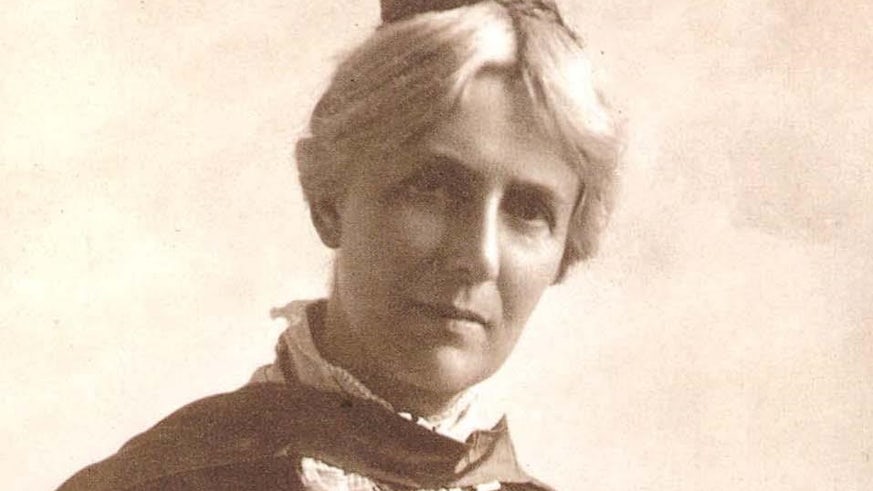Wales’s first female candidate
24 August 2018

Millicent Mackenzie (1863–1942) has been added to the national record of figures who shaped British history.
Wales’s first female professor and first female parliamentary candidate, Professor Mackenzie has been included in the Oxford Dictionary of National Biography.
Appointed as Professor of Education (Women) in 1910 and selected by Labour for the University of Wales constituency at the 1918 General Election, Millicent Mackenzie’s legacy continues to this day. Dr Beth Jenkins, formerly of Cardiff University and now at the University of Essex, penned the profile of the educational and political pioneer.
Academic career
In 1891, Professor Mackenzie was appointed Normal Mistress at the University College of South Wales and Monmouthshire, Cardiff. She was promoted to Associate Professor of Education in 1904 before becoming the first woman in Wales to achieve full professorial status in 1910.
In 1916 she established The Guild of Education for National Service and Halsey Training College, a child-centred training scheme for teachers and social workers.
During her time in Cardiff, she was a prominent figure in tackling poverty and also held a leading role in the city’s women’s movement. She served as a founding member and vice-president of the Cardiff and District Women’s Suffrage Society, as well as a co-founder and president of the Cardiff and District branch of the British Federation of University Women.
Dr Jenkins said: “I am delighted that Millicent Mackenzie's significant contribution to British history is recognised by her inclusion in the Oxford Dictionary of National Biography. Her achievement as one of the earliest women to be appointed to professorial status in the UK is well known...”
“Whilst researching for her entry, I was also struck by the extent of her academic interests and social networks—particularly to learn that she was a founding member of The Order of Women Freemasons.”
Political pursuits
After two major parliamentary acts of 1918—The Parliament (Qualification of Women) Act and The Representation of the People Act—Professor Mackenzie was allowed to stand as Labour’s candidate for the newly created University of Wales constituency, becoming Wales’s first female parliamentary candidate.
The University’s graduates elected Liberal candidate Sir Herbert Lewis; had Professor Mackenzie been successful she would have been the first woman to take her seat in parliament. Irish revolutionary Countess Constance Markievicz was elected in the 1918 General Election, but as a Sinn Féin candidate she did not take her seat. It would be another year before the UK had its first sitting female MP—the Conservative Party’s Nancy Astor—and another decade until Wales elected its first female MP when a Liberal, Megan Lloyd George, was elected in Anglesey.
The National Biography's advisory editor is Dr Mari Takayanagi, Senior Archivist at the Parliamentary Archives. She recommended Millicent Mackenzie’s inclusion in the update.
Dr Takayanagi: “I was very keen to include as many as possible of the seventeen pioneering women who stood in the 1918 general election. Some already had entries, but when I looked to see who was missing, I couldn't believe that Millicent Mackenzie was among them.
“I was very pleased to recommend her inclusion in the Oxford Dictionary of National Biography, both for her academic prowess and as one of the earliest Parliamentary candidates...”
“She stood to emphasize the part women should play in national affairs, which was a very brave and important act for her to do, so soon after the right of women to stand for Parliament had been won.”
After failing to enter parliament, Professor Mackenzie and her husband—fellow University professor and philosopher John Stuart Mackenzie—travelled the world. In Switzerland she met social reformer Rudolf Steiner and, after seeing his ideas in practice, became an evangelist for the Steiner-Waldorf educational methods. In her later years she returned to her city of birth, Bristol, before settling with her husband in the Wye Valley.


